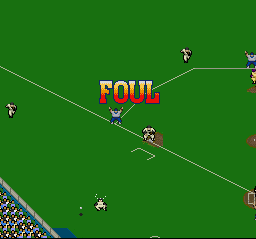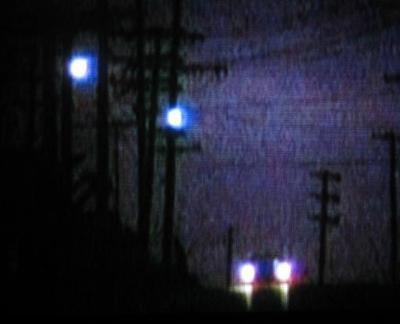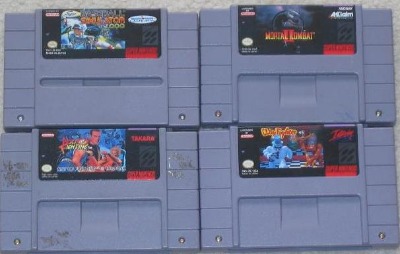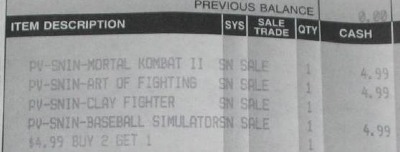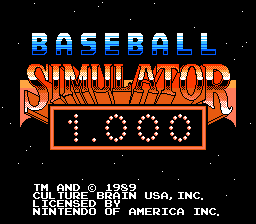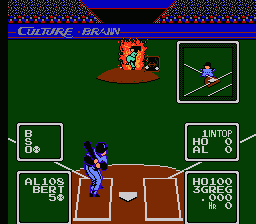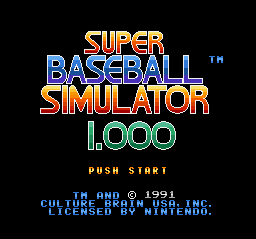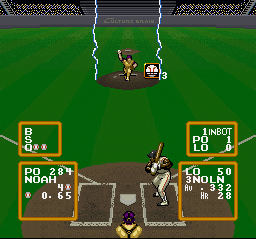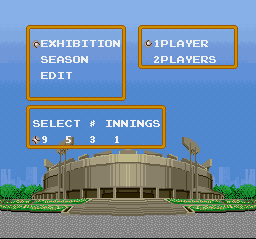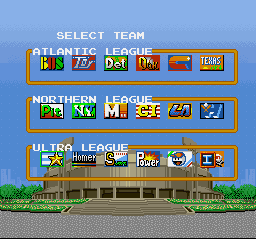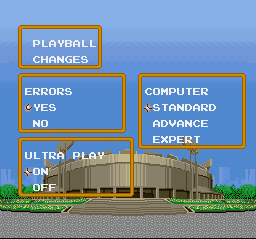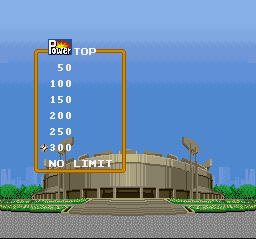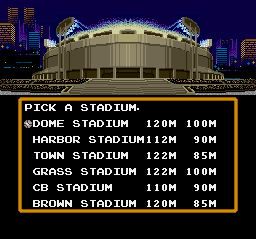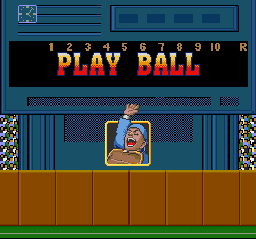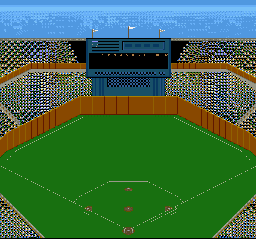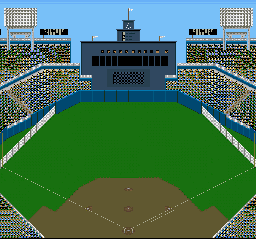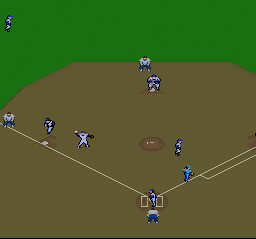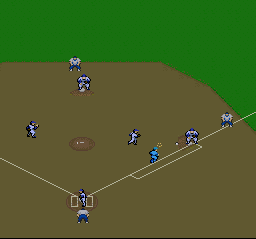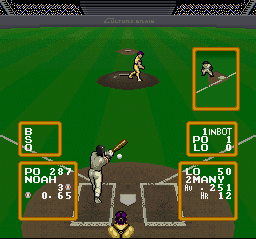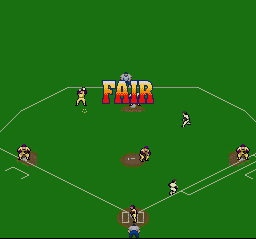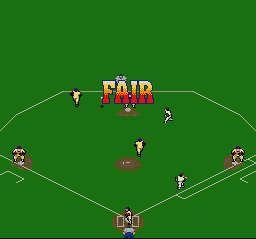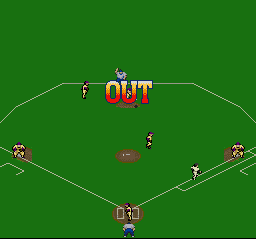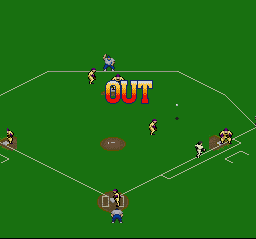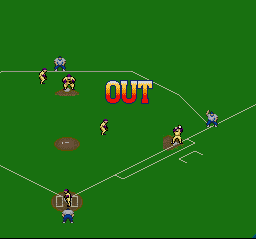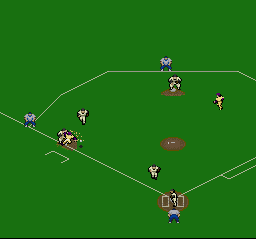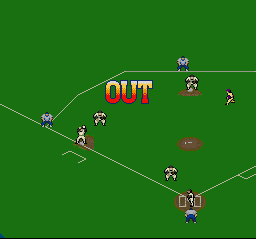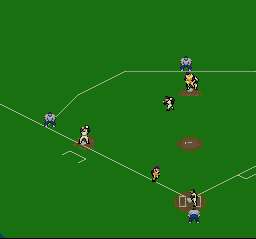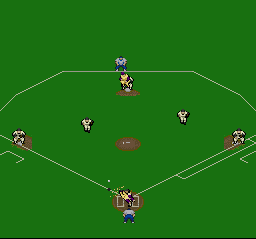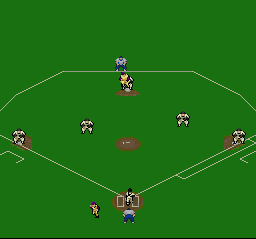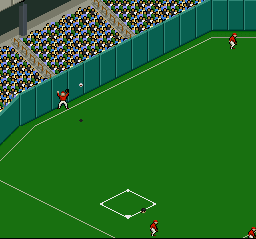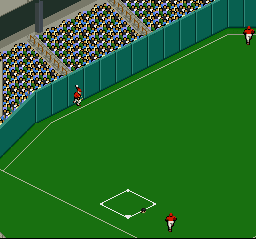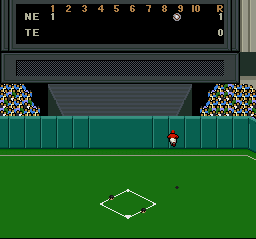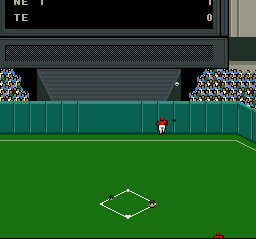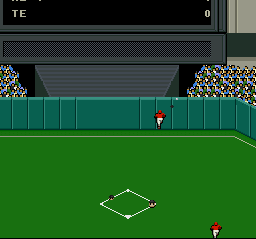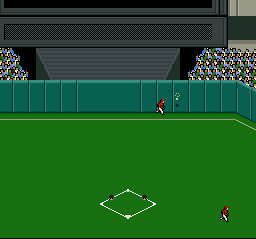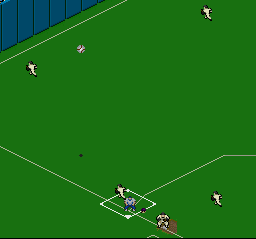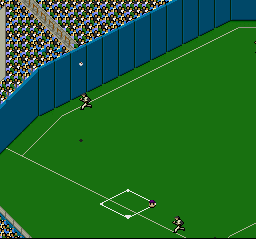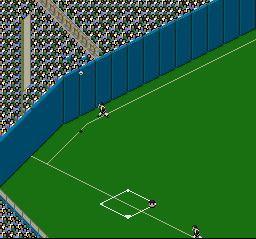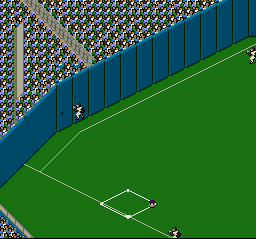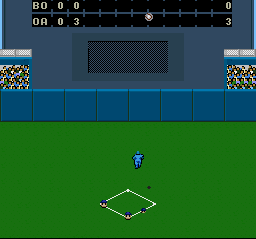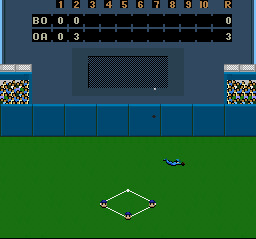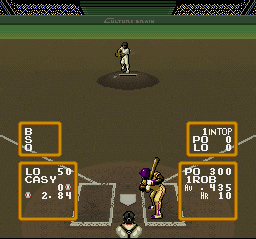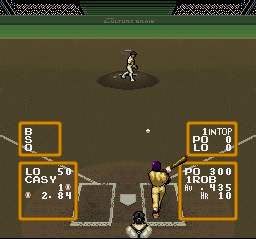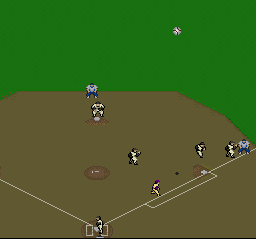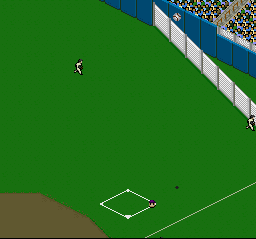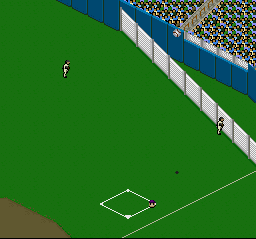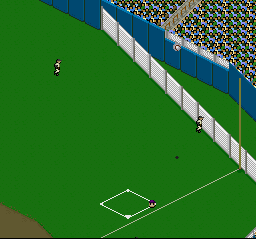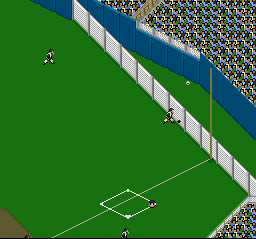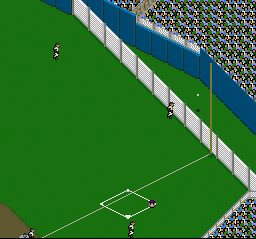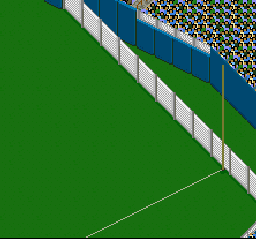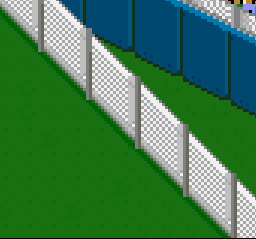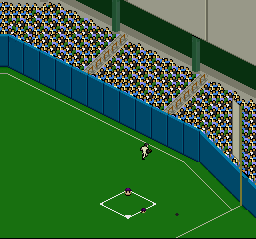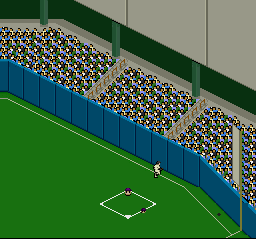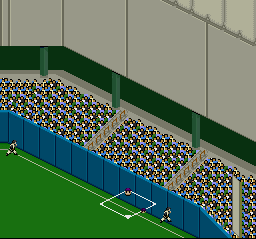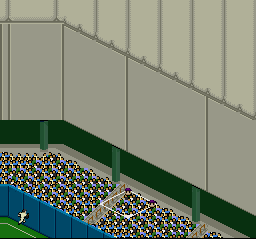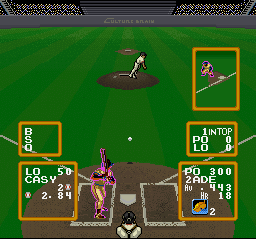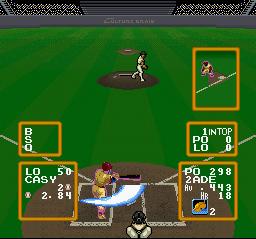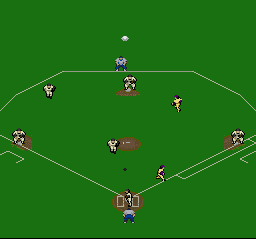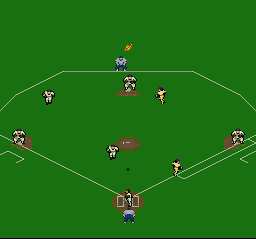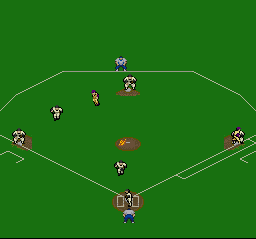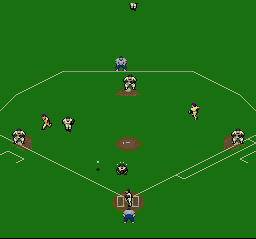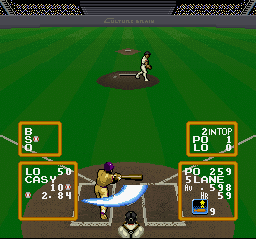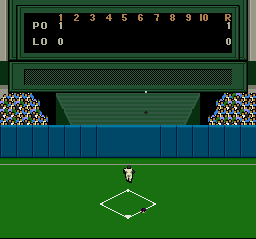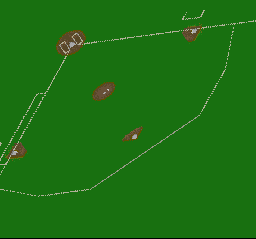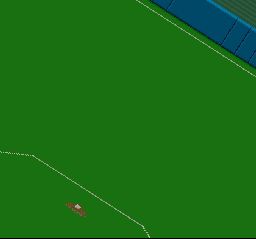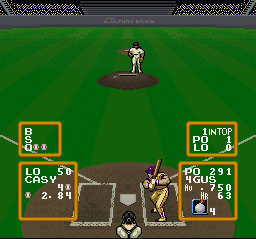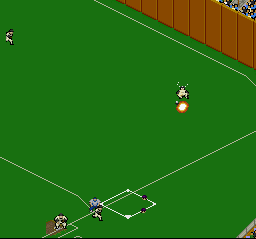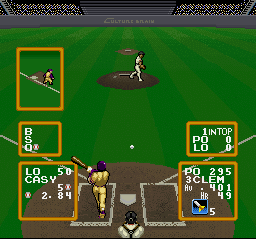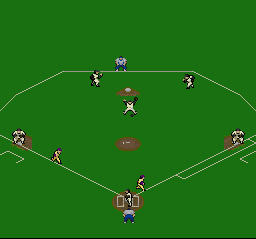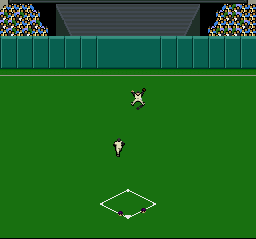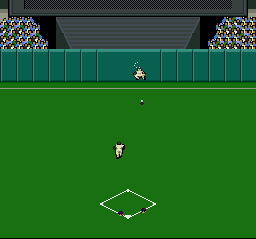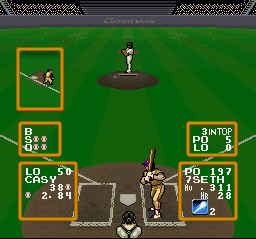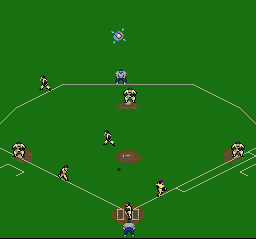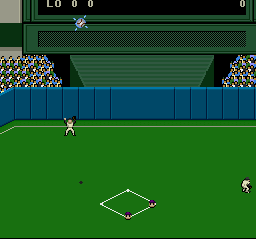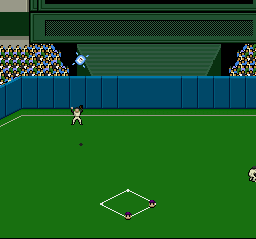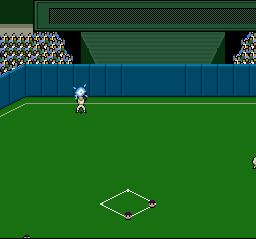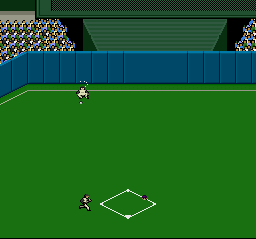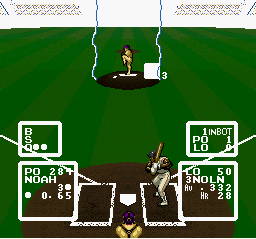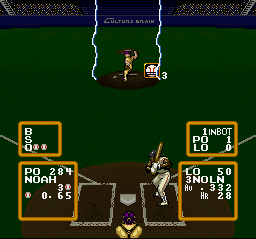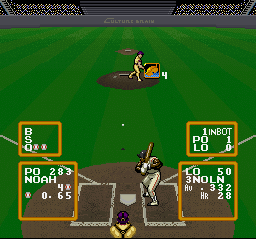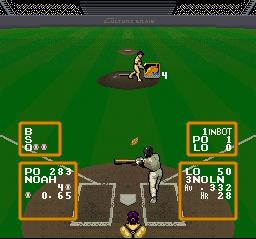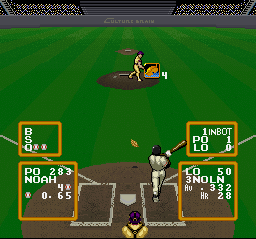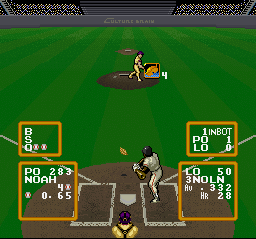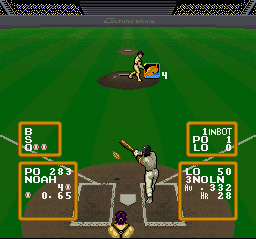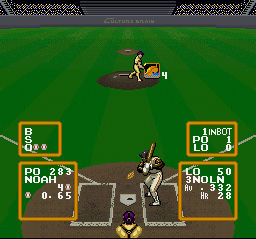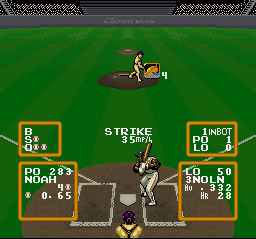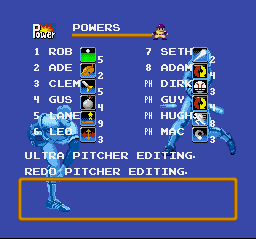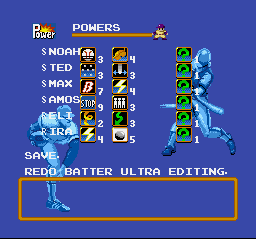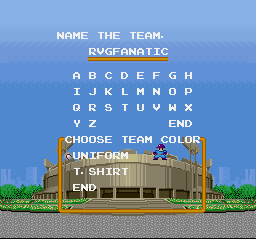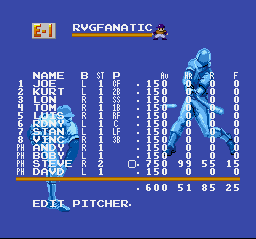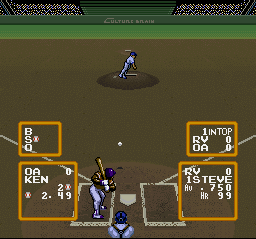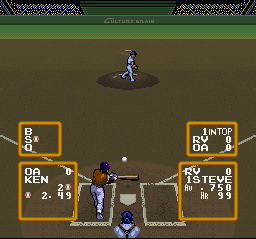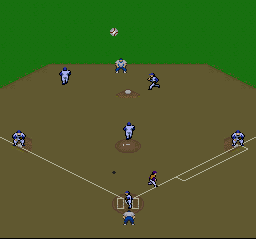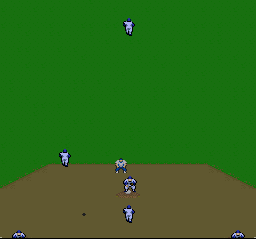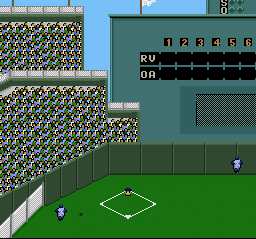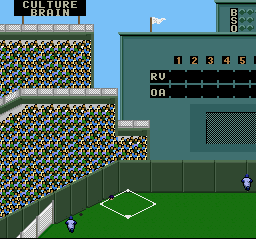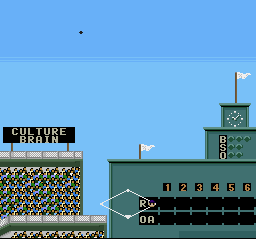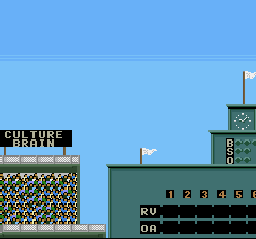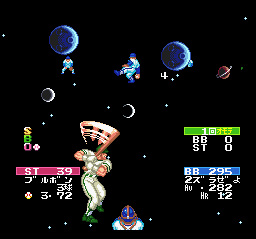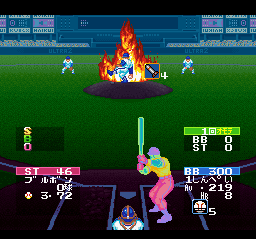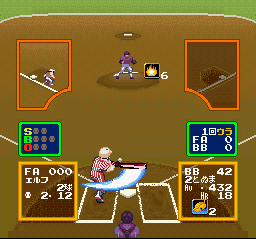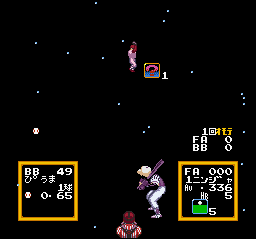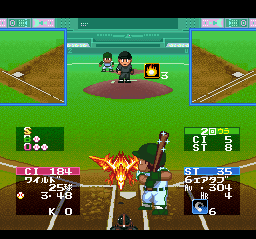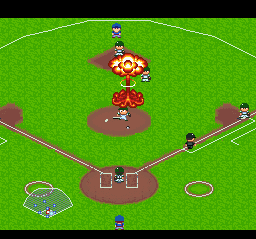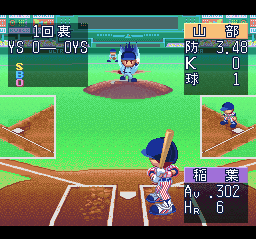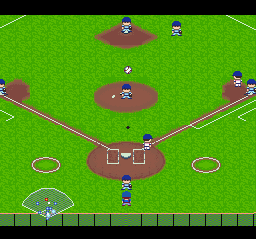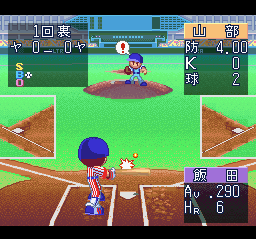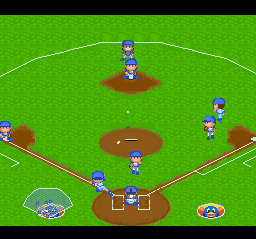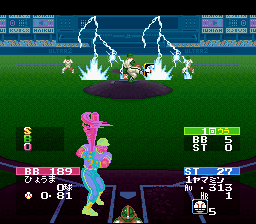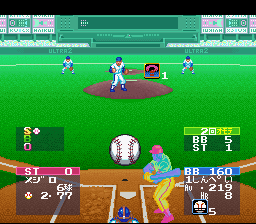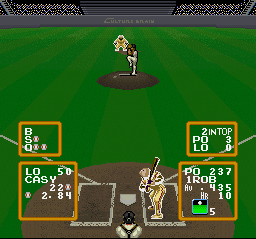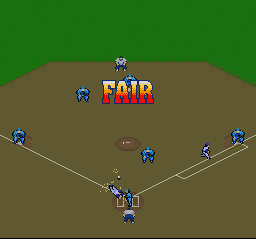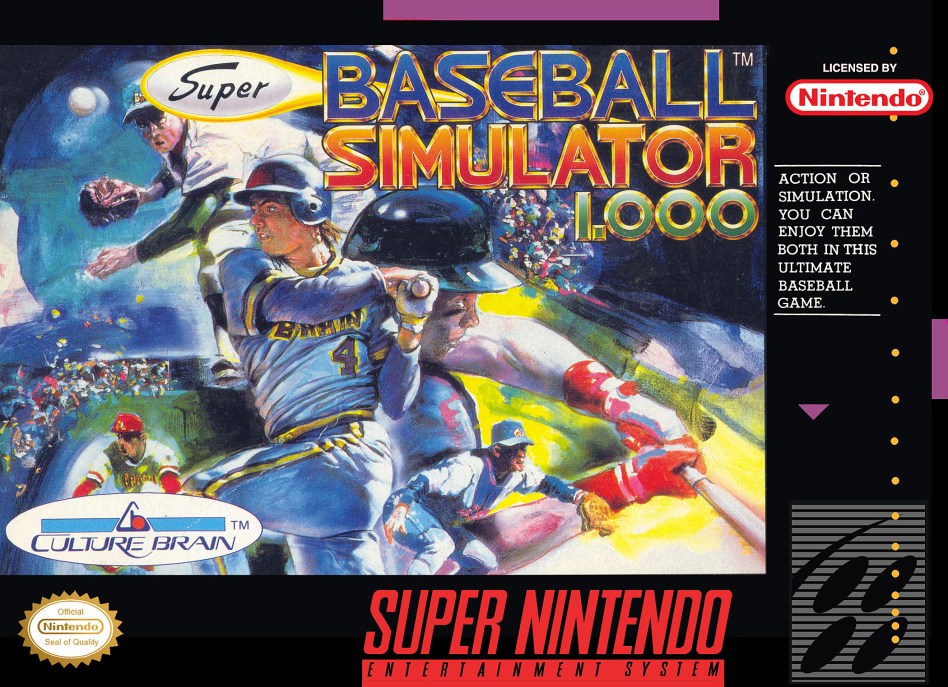
Every year when summer rolls along I can’t help but grow nostalgic for the 16-bit baseball games of my youth. Summer and baseball just go together, and that includes baseball video games. While I don’t recall playing Super Baseball Simulator 1.000 back in the ’90s, I do remember wondering about it and wishing I could have played it. It’s a game that has gone on to achieve something of a semi-cult status in diehard SNES circles. After playing it myself, it’s easy to see why.
HOMECOMING
January 26, 2006. I remember it like it was yesterday. I just got back into all things Super Nintendo (January 17, 2006) and on that Thursday night I decided to revisit my childhood town. It marked 10 years since I moved from my childhood home. 10 years. I wanted to swing by the old crib and also check out the Game Crazy inside my childhood Hollywood Video, which still stood at the time. Being less than two weeks into my SNES resurrection and having a want list of over 200 games meant there was a good chance I was going to find at least one game to add to my ever growing collection.

Early 2006 was a good time to get back into the SNES scene. Prices had yet to explode and real life stores like Game Crazy (a chain tucked inside Hollywood Video locations) actually carried a decent selection of SNES games. So many times as a kid my dad would take me to this very Hollywood Video location and I would browse the horror section endlessly as well as the 16-bit rentals. It was a joy to be able to pick up the various boxes to examine up close, admiring the art work on the front and reading the description on the back of the boxes. It’s a shame kids nowadays don’t get to experience that.
That fine evening I bought Art of Fighting, Clay Fighter, Mortal Kombat II and Super Baseball Simulator 1.000. It was a perfect mix of childhood favorites and curiosities. Clay Fighter was a guilty pleasure while MK II was legit one of my favorite SNES games, period. As for Art of Fighting and Super Baseball Simulator 1.000, those were two games I always wanted to play as a kid but just never did. Now I could. Such is the beauty of retro gaming — the combination of availability and having the disposable income today that you didn’t have 20-25 years ago. It’s the closest thing to a time machine.
Four more games crossed off the ol’ want list. Clay Fighter was free because Game Crazy used to do this Buy 2 Get 1 Free deal for older games. Early 2006 was definitely a glorious time to be buying SNES games. Alas, I digress once more. I couldn’t wait to finally play Super Baseball Simulator 1.000.

A QUICK HISTORY LESSON
Culture Brain released Baseball Simulator 1.000, known as Choujin Ultra Baseball in Japan, to the NES in March of 1990. It stood out in a crowded genre thanks in part to its Ultra Plays. Ultra Plays give batters and pitchers different temporary power-ups, such as being able to throw a fire ball — a much faster fastball that is also capable of eliminating an opposing batter from the game if it hits them! Needless to say, it was a fun and quirky take on the sport that endeared itself to many NES gamers.
December 1991 saw the release of Super Baseball Simulator 1.000 (known as Super Ultra Baseball in Japan). It brought over the Ultra Plays that made the NES original so memorable. While not everyone’s cup of tea, to me it stands as one of Super Nintendo’s most fun baseball games.
OPTIONS
Select your desired options and then pick from one of 18 teams. The six teams in the Ultra League have the ability to use Ultra Plays.
Playing with an Ultra League team gives you the choice to set how many points you want. Each Ultra Play costs a certain amount of points. You can set it as low as 50 or unlimited. Or turn it off altogether if you’re the purist type.
There are six stadiums to pick from. I love the way the umpire looks. Gives off that “NES baseball” vibe and I mean that in the best way possible. Screw the fancy 3D models of today’s baseball games. Give me charming and cartoony sprites any day of the week!
Zooming in because Mode 7! My personal favorite is Brown Stadium. I love the way it has those tiny little white fences tucked in there to give you a chance at hitting some “cheapie” home runs…
PLAY BALL!
Baseball games from that era suffered a bit from weak arms. Yes, there’s a bit of that here, too. Balls will bounce in the dirt even from short distances. It’s not ideal but it’s not a game killer.
Double plays are pretty smooth and easy to turn. A minor pet peeve: the runner disappears when he’s thrown out rather than running away. But again, just a minor gripe, really. Fielding is fairly good and that’s the most important thing.
Sometimes you appear to be safe but you’re called OUT instead. Now that can be frustrating. But I like to think of it as the umpire made a bad call, just like you see in real life every now and again. I mean, it’s not too bad but is worth noting.
Umpire didn’t mess up here, though. See? It’s not too bad. Too bad the game doesn’t show you the new score when a run comes in, though. Small touch but goes a long way. But you get used to it.
Speaking of human error, if you turn errors on then that’s exactly what can happen from time to time. D’oh! It does bring an added sense of realism, though.
Seeing a ball you hit bounce off the top of the wall is a bit of a bummer. But in this case at least you still got a chance at driving in a run. The base runner icon in this game is a bit funky. Instead of seeing it progress naturally, it only updates every halfway point or so. It’s a bit jarring the first time you see it.
ASK AND YOU SHALL RECEIVE
Seeing a ball you hit just barely clear the fence is ultra satisfying.
Smashing home runs never get old. Nice fake hustle there!
Robby smacks the ball DEEP! Well OK, sort of deep. A little bit deep-ish? The center fielder gives chase to cover his teammate out in right who already has a beat on the ball…
Actually, he doesn’t. No, the right fielder can only witness in horror and frustration as the ball innocently sails just past the little white picket fence and lands in the grass clearing in front of the big blue wall. These are the best home runs to hit. It doesn’t get any better than that!
Gratuitous Mode 7 ensues. Quirky and endearing.
Perhaps I spoke too soon… the mammoth MOON SHOT that leaves no doubt is the absolute best. Holy crap look how high up that one went!
ULTRA PLAYS
Majestic home runs are nice but let’s check out the real star of the game here: ULTRA PLAYS. This one turns the ball into a leaf which floats slowly and makes it difficult for the defender to catch. Love the way the batter (and the runner too) flashes. It’s the small details!
Looking for a power boost? Look no farther. This Ultra Play gobbles up 9 points, though.
Super Stroke Simulator 1.000, more like.
Brings new meaning to the term, “That player bombed…”
Missile Hit Ultra Play represents all that is right in gaming. It’s impossible not to smile when you see this (unless it’s happening to you). God bless Culture Brain for thinking outside the box.
Another great laugh. This game is endearing as hell!
Pitchers wanna have fun, too! This one makes the ball disappear during its flight to home plate before reappearing at the very last second. Pretty cruel stuff…
Think of all the great unhittable pitches of our time. Pedro Martinez’s curveball. Nolan Ryan’s fastball. Mariano Rivera’s cutter. Well, with that historical context firmly in mind, add to it the leafball. That’s right, the LEAFBALL. It’s so slow and perplexing that hitters can swing and miss SEVERAL times before it ever hits the catcher’s mitt!
Pissed off, the batter decides to let it go. Who knows, maybe it’ll fall in for a ball. GOD DAMNIT! 35 MPH strike?! YA GOTTA BE KIDDIN’ ME, MAN!
EDIT AND SCOUT
Super Baseball Simulator 1.000 is extremely customizable. It was a marvel back in 1991 for those who played it back then. You can adjust and alter Ultra Plays to your heart’s content.
Construct your very own team, players and their ratings. Hell, even choose the uniform color! This was groundbreaking stuff back in 1991. And yes, I did max out a certain “Steve” there… [Only in video games -Ed.]
Steve steps up to the plate, batting .750 with 99 HR, and launches one off his bat. Let’s see how far it goes… [Like I said, only in video games -Ed.]
HOLY SHIT! Marvel at how far this moon shot goes.
SUPER BASEBALL SIMULATOR 1.000 2
Unbeknownst to some, Culture Brain released a sequel only in Japan. Super Ultra Baseball 2 came out on July 28, 1994. It beefed up the visuals but kept the same quirky gameplay that made the first one so endearing. It’s a shame it never came out to North America. An English translation of SUB 2 can be found online…
SIMILAR TITLES AND RECOMMENDATIONS
Culture Brain made many SNES baseball games in Japan only. This is Ultra Baseball Jitsumeiban. Released August 28, 1992, it plays pretty much like Super Baseball Simulator 1.000 but it features real professional Japanese baseball players. Still has all the Ultra Plays you know and love but it’s presented in a slightly less cartoonish way.
Obsessed with pumping out baseball games much? Culture Brain was pretty much the Capcom of the baseball genre! Not five months after Super Ultra Baseball 2, Ultra Baseball Jitsumeiban 2 graced the Land of the Rising Sun on December 22, 1994. Yup, little Japanese boys and girls enjoyed themselves a merry baseball Christmas that holiday season. The biggest change? The visuals. I really like their decision to go Super Deformed. There’s something charming about a 16-bit baseball game featuring slightly deformed ball players. Kind of even has a quasi-EarthBound look, eh? Best of all, the Ultra Plays are still here.
Arriving mere days before Halloween 1995 (October 27), Ultra Baseball Jitsumeiban 3 is what you’d get if you took the previous two games in the series and mixed them in a visual blender. It’s not quite Super Deformed as the second game and it’s not as “serious looking” as the first one. But it still has all the Ultra Plays you could want!
Culture Brain released its final Super Famicom baseball title on January 17, 1997. Rather than go with Super Ultra Baseball 3 or Ultra Baseball Jitsumeiban 4, Pro Yakyuu Star was a standalone effort. Although the Ultra Plays were scrapped, from a technical standpoint this is Culture Brain’s best SNES baseball game. Improved fielding after all goes a long way. If you miss the Ultra Plays, you can play any of the five previous games.
Overall, you can’t go wrong with any of these. They’re all fun and charming in their own way. On a side note, a wacky Japanese announcer is introduced in Ultra Baseball Jitsumeiban 2 and reappears from there on out. You know, just to give those games even more of a Japanese punch. There’s some Japanese text to navigate obviously, but nothing you can’t figure out. If you love Super Baseball Simulator 1.000 then you owe it to yourself to check out its direct sequel Super Ultra Baseball 2 at the very least. While you’re at it, it might be worth your while to sample Culture Brain’s other baseball offerings as well.
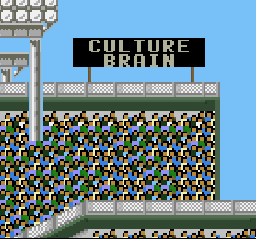

WHAT THE CRITICS SAID
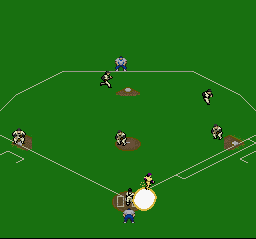
Super Baseball Simulator 1.000 is quite the polarizing little game. On the surface it appears to be a crude looking rudimentary baseball game. That alone makes it not everyone’s cup of tea. I’ve seen many retro gamers say that this game was “meh.” Super Play rated it 49%. I can see why someone would give this game such a low mark. But then you have a camp of retro gamers who love this game and swear by it. It’s got sort of a semi-cult following, even. And it’s easy to see why. The kooky Ultra Plays, the insane level of customization and just the overall fun. While it doesn’t come close to topping the almighty Ken Griffey Jr. Presents Major League Baseball, this is easily one of the best SNES baseball games especially if we’re talking strictly North American releases only. I get a kick out of reading stories about how much Super Baseball Simulator 1.000 meant to various people throughout the years. It’s really quite the little nostalgic number for many folks who grew up with the SNES back in the early ’90s. When so many people love a game, you know the developer did something right.
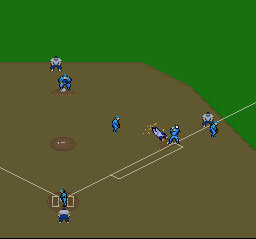
CLOSING THOUGHTS
As far as 16-bit baseball games go, Super Baseball Simulator 1.000 is admittedly a bit elementary. The fielding isn’t the best. Players’ arms are way too weak. It’s got more than its fair share of blemishes. However, this is all overlooked (somewhat) because of how much damn fun it is to play. It doesn’t take itself too seriously, as evident with the Ultra Plays. Some are downright comical such as the Missile Hit which sends any poor defender who catches the ball careening hard into the outfield wall, complete with dizzy stars encircling their bruised dome. It’s ridiculous stuff like this that makes it such a joy to play. Not into Ultra Plays? Turn it off, limit it or play as one of the non-Ultra League teams. Super Baseball Simulator 1.000 is as serious or as silly as you decide to make it. That versatility goes a long way! It’s impossible not to crack a grin at some of the zany “Did that really just happen now?” moments. Few baseball games have made me smile more than this one. I only wish I played it back in the ’90s.
The visuals are improved over the NES original obviously but they’re far from great. They’re a bit crude in places but there’s an overall charm to them that works, from the various batting stances to even the way the different stadiums are constructed. It gets the job done. The music gets really upbeat when you have a rally going and is pretty pleasant on the ears, as long as you enjoy that early ’90s baseball video game vibe. I personally do. The gameplay as I mentioned has a few rough spots but it’s perfectly functional and once you get the hang of things you’ll find your groove. The amount of options and customization along with the creativity of the Ultra Plays make this a winner. If you’re tired of baseball games that take themselves way too seriously and you’re looking for something that isn’t afraid to operate outside the box, Super Baseball Simulator 1.000 is a good bet to scratch that itch.
Graphics: 4.5
Sound: 8
Gameplay: 8.5
Longevity: 9
Overall: 8.5

